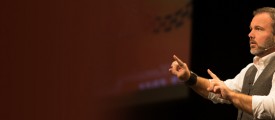By Julie Stoll, MBC Tysons Attendee
Remember Jonah the reluctant prophet? God shared His heart of compassion for the people of Nineveh, and told Jonah to go make a difference there. But Jonah went in the opposite direction, intentionally refusing to join God’s plan. Why? What prompted Jonah’s reluctance and emboldened him into rebellion?
Perhaps Jonah had bought into the cultural perspective of his nation. The Jews at that time had a nasty history with the Ninevites and viewed them as despicable. Why be involved with anything good directed toward a “bad” group who chose to be that way? I can relate to that in my prayer life. I am reluctant to pray for people I don’t understand or who don’t have direct influence on me. Only my favorites—those who deserve betterment—get face time. I sadly see my resemblance to Jonah; I am a reluctant pray-er.
Modern day Nineveh is Mosel, Iraq. The ancient ruins of Nineveh still stand on the eastern side of the Tigris River, which could remind all of God’s compassion at the time of Jonah. But instead we see it frequently on the news—a hotbed of warring Islamic factions—and chalk it up to someplace remote where God isn’t. But today I am challenged that God is indeed active.
He is actually sovereign over all peoples and cares about their well-being, just as he cared about the Ninevites so long ago. Even when it seems that injustice is the rule of the day, where oppression and violence abound, God still desires His people to be messengers of hope, of His offer of redemption. Yet I find myself comfortable in my reluctance. It is startling to think that I may be acting on deep prejudice or, at best, intentional avoidance of “those” people who sadly suffer by their own choice of where to be born. Really?The news stories of Christian refugees in Northern Iraq challenge me to pray. At the very least to pray for justice and safety for my brothers and sisters in Christ within warring Northern Iraq and now as refugees in Turkey. With Christian backgrounds, they are in positions today where God sovereignly placed them (Acts 17: 26-27). But can Christian Iraqis be embedded messengers of hope in that region without their broader global Christian community praying for the strength and wisdom they need to stand firm?
I am told to pray for workers in the harvest (Matthew 9:37-38). To pray for God’s plan to get His message to all the “Ninevites”. Whether I am prejudiced against them or not. He is going to act and my choice is whether to join Him in His work or just hear about how it was accomplished in the sweet by-and-by. I am more aware than ever of my own reluctance to engage in something that costs me so little—prayer. And that is for my brothers and sisters in Christ. That is not even to consider the majority population—people Jesus died for!
So here are five things I have decided to pray for this week as I try and dissolve my reluctance and resolve to pray:
- Pray for God’s gracious justice and peace to be present in the area surrounding Mosel. I think I will actually Google map the city and visualize it as I pray.
- Pray for laborers to be effective in the harvest fields of Northern Iraq and in the refugee camps in bordering countries. For me, I will pray for efforts of Samaritan’s Purse.
- Pray for Iraqi believers to be strong and effective in evangelism and planting seeds of hope among the culturally Christian Iraqi people.
- Pray that God’s offer of redemption be heard through brothers and sisters there (Colossians 4:3).
- Pray for my own heart to be renewed toward His purposes that includes a dissolving of my reluctance to pray for His work.




